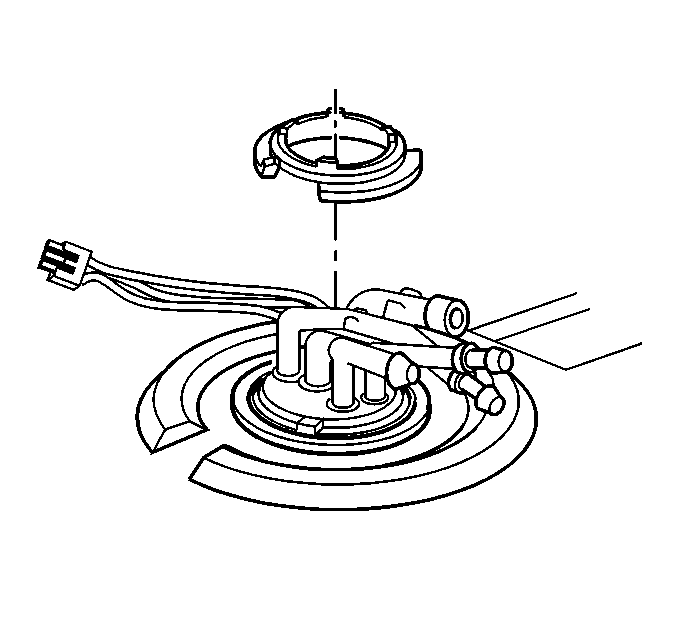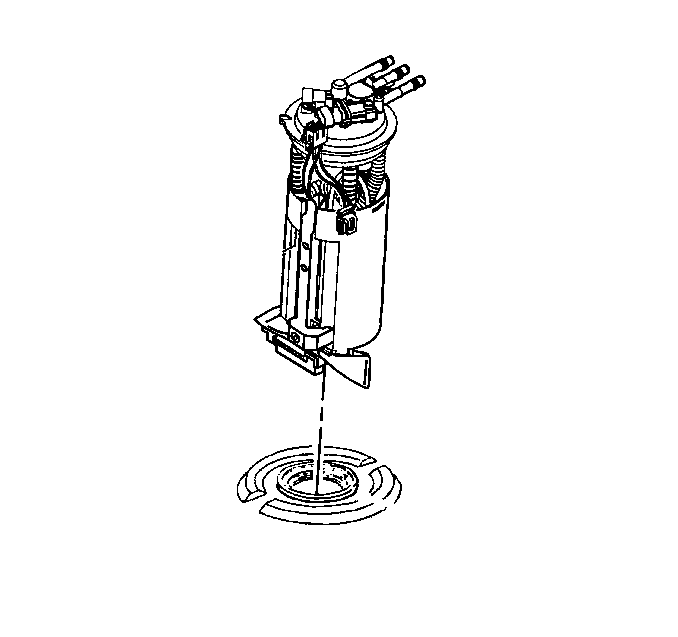Fuel Sender Assembly Replacement Fuel Pump
Removal Procedure
- Relieve fuel system pressure. Refer to Fuel Pressure Relief Procedure (SFI) for SFI or Fuel Pressure Relief Procedure for CSFI.
- Disconnect the negative battery cable. Refer to
Caution: Unless directed otherwise, the ignition and start switch must be in the OFF or LOCK position, and all electrical loads must be OFF before servicing any electrical component. Disconnect the negative battery cable to prevent an electrical spark should a tool or equipment come in contact with an exposed electrical terminal. Failure to follow these precautions may result in personal injury and/or damage to the vehicle or its components.
in General Information. - Raise the vehicle on a hoist.
- Remove the fuel tank.
- Remove the sender unit and pump by turning the cam lock counterclockwise using tool J36608 .
- Remove the fuel pump from the sending unit by performing the following steps:
- Inspect the fuel pump attaching hose for signs of deterioration.
- Inspect the rubber sound insulation at the bottom of the pump.
- Inspect the strainer.
Notice: Use extreme care when lowering the fuel tank. The fuel sender is made of plastic. Lowering the fuel tank may damage the fuel sender.


| 6.1. | Pull the fuel pump up into the attaching hose while pulling outward from the bottom support. |
| 6.2. | Do not damage the rubber insulator or the strainer. |
Installation Procedure
- Install the fuel pump assembly into the attaching hose.
- Install the sending unit and the fuel pump assembly into the fuel tank.
- Insert a new O-ring seal.
- Install the cam lock assembly.
- Turn the cam lock clockwise in order to lock into place.
- Install the fuel tank.
- Connect the negative battery cable.
- Check the system for leaks.

Notice: Do not fold or twist the strainer when installing the sending unit. This action restricts fuel flow.

Fuel Sender Assembly Replacement In-Tank Fuel Filter
If the in-tank filter requires service, refer to Fuel Sender Assembly Replacement (Fuel Pump) .
